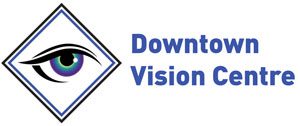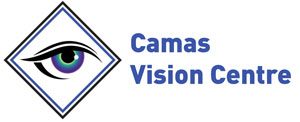
Who Fits Specialty Contact Lenses?
If you have been told that contact lenses are not an option, speak with an optometrist trained in fitting specialty contact lenses. Dr. Robert Nicacio at The Camas Vision Centre Scleral Lens and Keratoconus Center can offer several alternative high-quality options for rare or severe eye conditions.
How Is an Optometrist Trained in Fitting Specialty Contact Lenses Unique?
Every optometrist can fit conventional contact lenses. However, specialty contacts are another story, and few optometrists have undergone the necessary training in fitting specialty lenses, such as scleral lenses, hybrid lenses, or custom rigid gas permeable lenses.
Scleral lenses are custom-fit to each patient’s individual cornea. This requires the optometrist to acquire more in-depth knowledge in areas traditionally belonging in the field of a corneal specialist.
Moreover, special equipment is needed to fit specialty lenses. The optometrist uses different devices to assess whether a particular specialty lens is a good fit and to precisely measure a cornea’s unique shape.
When Should You See an Eye Doctor for Specialty Lenses?
Many of our patients have experienced discomfort or complications when using traditional soft contact lenses. In these cases, wearing scleral lenses offer more comfort yet provide the same visual acuity or better.
If you have an eye condition that prevents you from wearing regular contact lenses, such as corneal irregularities (i.e. keratoconus), post corneal transplant, severe dry-eye, or an unusually high refractive error, scleral contact lenses may be a good fit.
Special lenses may also help patients cope with complications following surgery or improve remaining refractive errors. Dr. Robert Nicacio can help you evaluate your alternatives.
 Conditions Special Lenses Can Treat
Conditions Special Lenses Can Treat
- Keratoconus
- Astigmatism
- Dry Eye
- Post-Refractive Surgery (LASIK, RK, PRK)
- Corneal Dystrophy and Other Chronic Eye Diseases
- High Refractive Errors
Fitting Specialty Lenses
Specialty lenses require specific diagnostic equipment. Only a precise image of the cornea’s surface can ensure optimal fitting of the individual lens for perfect vision.
At The Camas Vision Centre Scleral Lens and Keratoconus Center, we use an advanced digital topographer to measure your cornea during your initial eye exam. This digital device produces high-resolution corneal imagery and provides the parameters to design your customized lenses. Your specifications are then sent to a contact lens lab, which produces a set of lenses designed specifically for your eyes.
After ensuring the lenses are a perfect fit, Dr. Robert Nicacio will instruct you on how to insert, remove and take care of specialty contact lenses, since handling them calls for a little more precision and caution than traditional lenses.
Interested in Specialty Contact Lenses?
At The Camas Vision Centre Scleral Lens and Keratoconus Center, we can provide accurate and current information about specialty contact lenses as well as a broad scope of general contact lens products. We have the equipment needed to assess suitability and fit every type of lens.
Optometrists, such as Dr. Robert Nicacio, are experienced in fitting specialty contact lenses for rare eye conditions. For us, these are not exceptions, but our every-day profession.
Contact us today to find out which contact lens alternatives are most suitable for your specific condition. The Camas Vision Centre Scleral Lens and Keratoconus Center will make sure you receive individual consultation and care.
We treat patients in Vancouver, Camas, Portland,Hillsboro, and throughout Washington.
Resources:
- https://www.allaboutvision.com/contacts/hard_to_fit.htm
- https://www.reviewofcontactlenses.com/article/whos-a-candidate-for-scleral-lenses
- https://www.cornealdystrophyfoundation.org/what-is-corneal-dystrophy
- https://www.allaboutvision.com/resources/sclera.htm
- https://www.allaboutvision.com/conditions/keratoconus-faq/keratoconus-contact-lenses.htm

